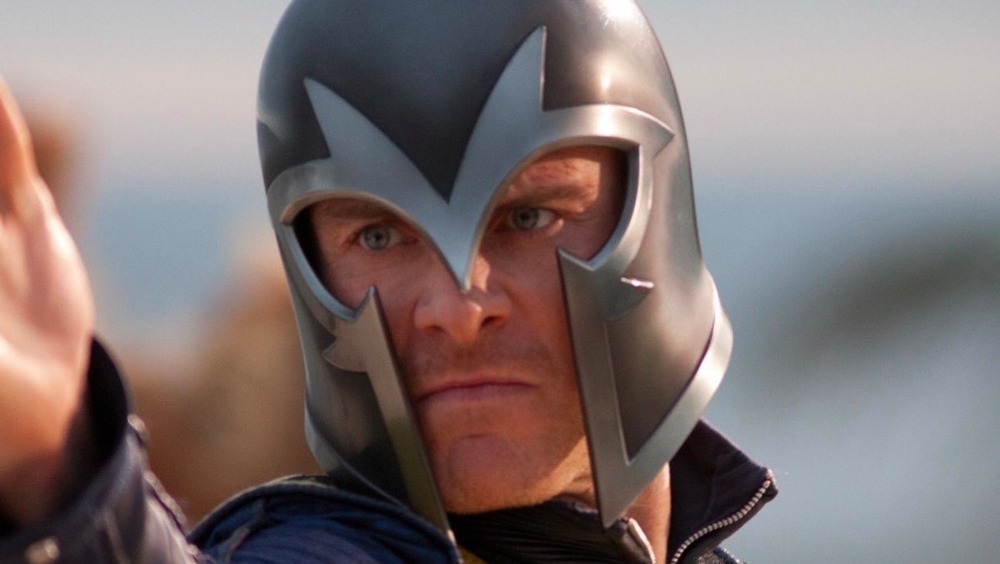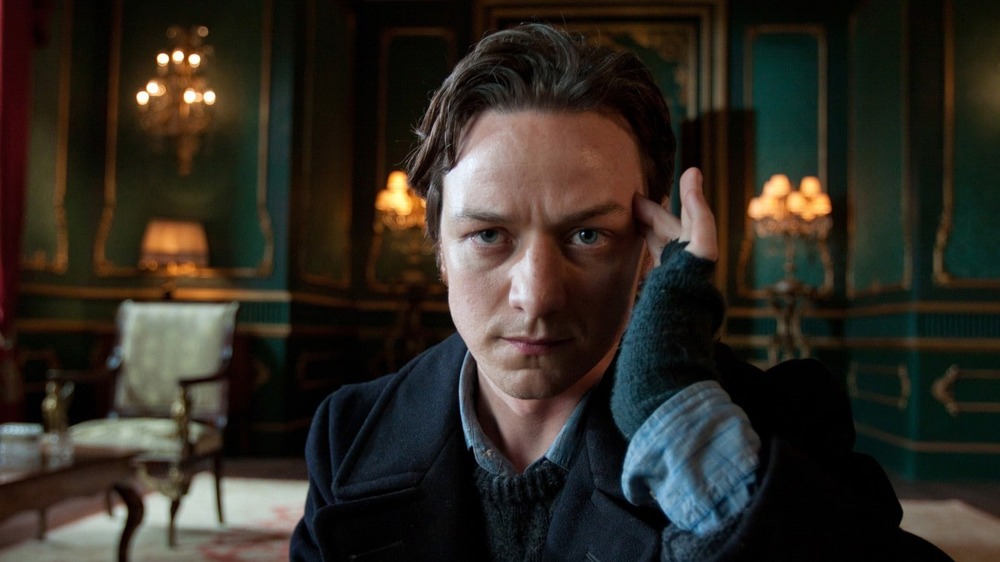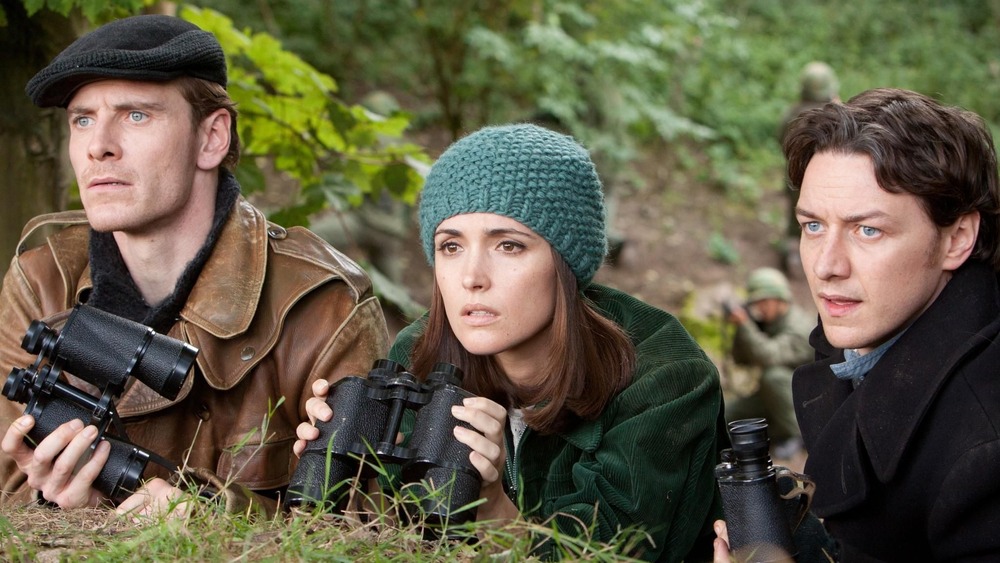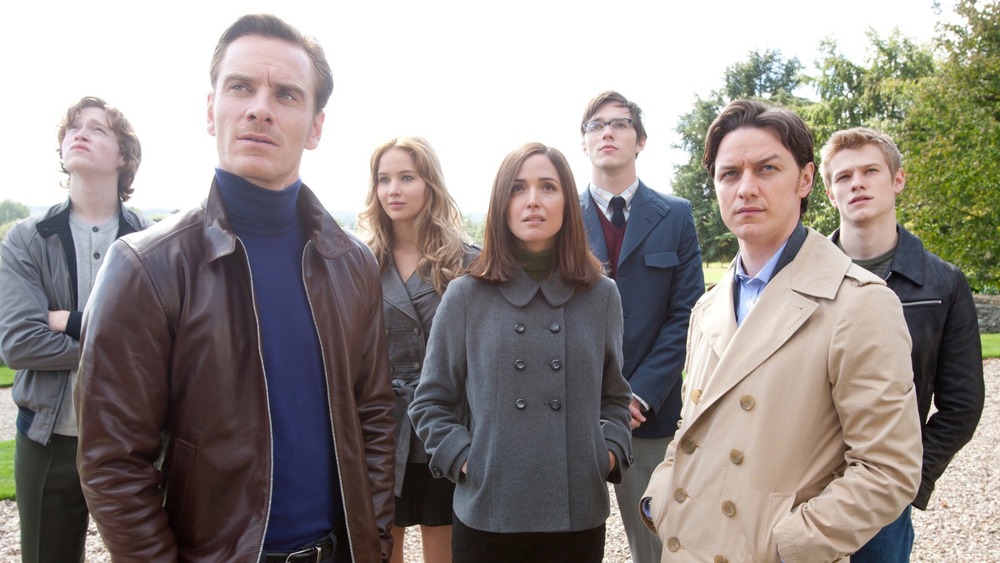The Ending Of X-Men: First Class Explained
In some ways there's little drama in making a movie in which Charles Xavier and Magneto as friends and comrades. No matter how many times they buddy back up to each other in the comics, or how many well-intentioned atrocities they each commit, the status quo of the two mutant patriarchs will always tend back toward having them as the best of enemies, archfriends, genial foes. The question in X-Men: First Class is, "What drives them apart this time?"
The short answer is, "The same thing that always drives the pair apart, Pinky." Erik Lehnsherr (Michael Fassbender) –– he'll finally call himself "Magneto" in the film's final scene –– believes in mutant supremacy and the near-inevitability of a conflict between humanity and mutantkind. Xavier (James McAvoy) prefers to work toward the peaceful coexistence of humans and mutants. It's a tale as old as time — or at least 1963.
The long answer, at least in this film, involves Lehnsherr and Xavier preventing the events of the Cuban Missile Crisis, which the powerful mutant Sebastian Shaw (Kevin Bacon) intends to use to spark World War III and mutant ascendency.
X-Men: First Class splits Charles Xavier and Magneto
Lehnsherr agrees with Shaw's goals but stops his plan as a matter of personal revenge, since it was Shaw, posing as a Nazi commander, who killed Lehnsherr's mother at Auschwitz to draw out his mutant powers. He kills a helpless Shaw, over Xavier's protests. There's at least a decent argument to be made that Shaw was too dangerous to remain alive, and Xavier is, in a way, complicit with the act of killing him. It's his telepathy that freezes Shaw in place and shuts down his mutant ability to absorb kinetic energy.
Instead, what Lehnsherr does next represents the schism. The combined forces of the American and Soviet fleets turn their weapons onto the beach where the mutants have fought, seeking to exterminate this new threat. But Lehnsherr stops their shells and missiles in midair, turning them around and sending them back toward the ships. Xavier pleads with him to stop, and physically attacks him, trying to pull off the helmet Lehnsherr took from Shaw that blocks the intrusion of telepaths.
Now the stakes are very high. The conflict seems destined to have one of two endings from which there will be no repairing of their relationship. Xavier would never forget the thousands of innocent deaths if Lehnsherr bombards the ships. Lehnsherr could never forgive Xavier taking direct control of his mind to stop him. But the film chooses a third way: CIA agent Moira MacTaggert (Rose Byrne) emerges from a crashed plane to fire her pistol at Lehnsherr. He easily deflects the bullets with his powers, but one of them strikes Xavier in the lower back, paralyzing him.
It's his remorse that finally breaks Lehnsherr's concentration, leaving the missiles to crash into the sea. Xavier's inadvertent sacrifice saves the day, and allows their relationship to stay in that familiar frenemy zone.
X-Men: First Class splits the mutants
It's clear Lehnsherr and Xavier's philosophical disputes will prevent them from working together in all but the most dire of circumstance — more on those later — and so the pair split up, each taking different groups of mutants with them.
Several of Shaw's underlings –– Tempest (Zoë Kravitz), Azazel (Jason Flemyng), and Riptide (Álex González) –– follow Lehnsherr. Most crucially, so does Raven Darkhölme/Mystique (Jennifer Lawrence), who had grown up a foster sibling of Xavier's but finds herself ideologically drawn to Lehnsherr. Throughout the film, Xavier shows some discomfort with her natural, scaly blue-skinned form, which she reads as a preference that she assimilate by using her shape-shifting powers to appear as a human. Lehnsherr, on the other hand, states his (meme-worthy) preference for her original form during the film, and his insistence that she not apologize for that which makes her unique wins her over.
Xavier, meanwhile, returns to the family mansion with a small group of mutants, including Hank McCoy/Beast (Nicholas Hoult), intent on founding the school that will bear his name. He also has an ally in MacTaggert, who swears not to reveal anything she knows about the mutants to her CIA bosses, but the film implies that Xavier wipes her memory regardless.
X-Men: First Class failed to set up its sequel
And so the stage would seem to be set for the rest of the new X-series: two mutant leaders, two rival factions, most of late 20th century history to play around with.
It didn't quite work out that way. The sequel, X-Men: Days of Future Past, picked up only some of what First Class put down in adapting the famous storyline from the comics. A portion of it is set in the future, where mutants are relentlessly hunted by an unstoppable Sentinel army that they determine can only be stopped by sending Wolverine (Hugh Jackman) back to the year 1973. When he arrives, he finds much has changed in the intervening 11 years. Xavier's school has already shuttered, Xavier and McCoy take a serum that suppresses their mutant abilities and allows Xavier to walk again, and Lehnsherr is being held in a government prison for assassinating John F. Kennedy. Many of the secondary mutants from the first film don't even appear. The two sides of the conflict have each fallen apart before the war can even begin. Instead they join forces to combat the threat from the future, until such a time as Magneto decides to go rogue in a way that suits his own agenda.
In this sense, the series — including the two subsequent sequels, X-Men: Apocalypse and Dark Phoenix – mostly focused on the pair's relationship in periods of tentative alliance while facing a greater threat, rather than a conflict with a personal affinity at its center. Perhaps those little-loved latter films would have been better letting them fight amongst themselves.



